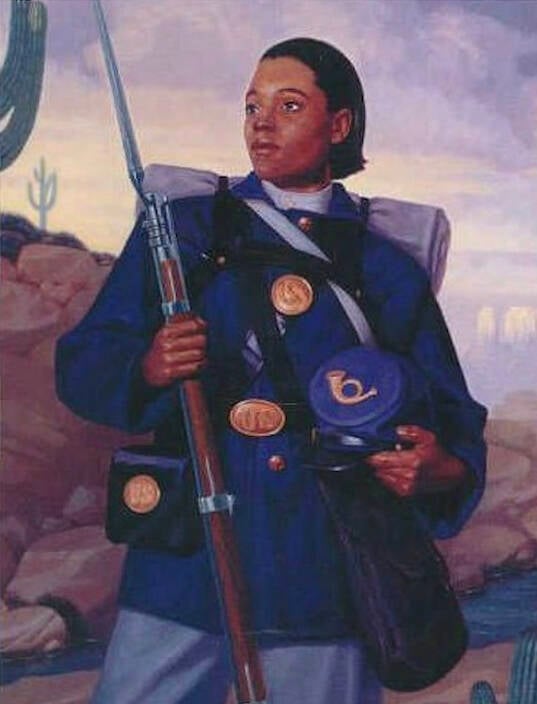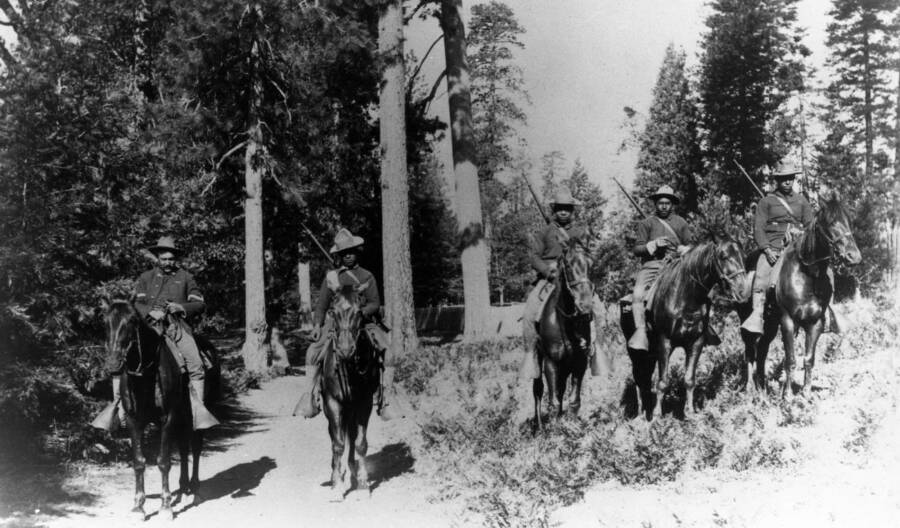Cathay Williams: The Buffalo Soldier Who Disguised Herself As A Man

U.S. ArmyA depiction of Cathay Williams, who disguised herself as a man in order to become a soldier.
The Wild West was a place of reinvention. But few reinvented themselves to the extent that Cathay Williams did. In 1866, she pretended to be a man in order to become a Buffalo Soldier on the American frontier.
Born enslaved in Missouri in 1844, Williams learned about the life of a soldier at a young age. After the Civil War broke out in 1861, Union soldiers came to occupy her hometown, and Williams, who was deemed “contraband,” was forced to work as a Union Army cook and a washerwoman.
Traveling with the Union Army, Williams saw the war up close.
“I saw the soldiers burn lots of cotton and was at Shreveport when the rebel gunboats were captured and burned on Red River,” she would later tell the St. Louis Daily Times in 1872. “Finally I was sent to Washington City and at the time Gen. (Philip) Sheridan made his raids in the Shenandoah Valley I was cook and washwoman for his staff.”

National Parks ServiceA group of Buffalo Soldiers patrolling Yosemite in 1899.
But when the war ended, Williams found few opportunities. So, she decided to disguise herself as a man and enlist in the U.S. Army.
According to Military.com, Williams was assigned to the 38th U.S. Infantry Regiment, one of six segregated Black infantry regiments. These Black soldiers were famously dubbed “Buffalo Soldiers” by the Native Americans who fought against them. This was supposedly because of their curly dark hair and fierce spirit, according to the National Parks Service.
And Cathay Williams — who presented herself as William Cathay — was one of them. She accompanied the 38th out west, where her regiment was tasked with protecting the construction of the intercontinental railroad.
Williams’ gender went unnoticed for about two years. But in 1868, doctors discovered the truth while they were treating her for a case of smallpox. Though she was honorably discharged, Williams’ legacy remains a remarkable one. She was the only woman to ever serve as a Buffalo Soldier and the very first Black woman to enlist in the U.S. Army.





